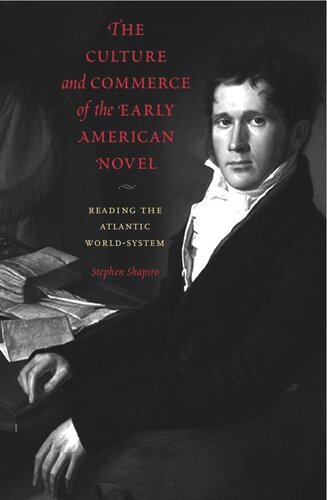

Most ebook files are in PDF format, so you can easily read them using various software such as Foxit Reader or directly on the Google Chrome browser.
Some ebook files are released by publishers in other formats such as .awz, .mobi, .epub, .fb2, etc. You may need to install specific software to read these formats on mobile/PC, such as Calibre.
Please read the tutorial at this link: https://ebookbell.com/faq
We offer FREE conversion to the popular formats you request; however, this may take some time. Therefore, right after payment, please email us, and we will try to provide the service as quickly as possible.
For some exceptional file formats or broken links (if any), please refrain from opening any disputes. Instead, email us first, and we will try to assist within a maximum of 6 hours.
EbookBell Team

0.0
0 reviewsTaking his cue from Philadelphia-born novelist Charles Brockden Brown’s Annals of Europe and America, which contends that America is shaped most noticeably by the international struggle between Great Britain and France for control of the world trade market, Stephen Shapiro charts the advent, decline, and reinvigoration of the early American novel. That the American novel “sprang so unexpectedly into published existence during the 1790s” may be a reflection of the beginning of the end of Franco-British supremacy and of the power of a middle class riding the crest of a new world economic system.
Shapiro’s world-systems approach is a relatively new methodology for literary studies, but it brings two particularly useful features to the table. First, it refines the conceptual frameworks for analyzing cultural and social history, such as the rise in sentimentalism, in relation to a long-wave economic history of global commerce; second, it fosters a new model for a comparative American studies across time. Rather than relying on contiguous time, a world-systems approach might compare the cultural production of one region to another at the same location within the recurring cycle in an economic reconfiguration. Shapiro offers a way of thinking about the causes for the emergence of the American novel that suggests a fresh approach to the paradigms shaping American studies.